Lin Qiu
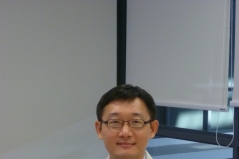
Lin Qiu
Ph.D. (Northwestern University)
Assistant Professor
Division of Psychology
School of Humanities and Social Sciences
Nanyang Technological University
Singapore
http://www3.ntu.edu.sg/home/linqiu/
Yaeeun Lee
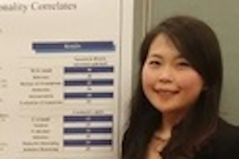
Yaeeun Lee
Yaeeun Lee received her B.A. in Psychology at University of Massachusetts Amherst and her M.S. in Psychology at Villanova University. For her graduate thesis, she investigated the effects of looking at prototypic fitness blogs and how personality plays a role in moderating affect and self-esteem post-exposure. She is currently pursuing a Ph.D. in Clinical Psychology at Idaho State University. Her research interests includes eating disorders, health behaviors, and behavioral economics of obesity.
Chris Millar

Chris Millar
Chris Millar studied psychology at the University of Glasgow (Scotland) and since graduating has worked in community, inpatient and forensic services across the United Kingdom. He is currently based in Buckinghamshire (England) working as a Clinical Research Assistant for Oxford Health NHS Foundation Trust and has particular interests in service user involvement, the benefits of physical activity and mental health within prison populations. He is blissfully social media free, to contact please email: chrisjsmillar@hotmail.com
Rudolf Stark
Rudolf Stark
Prof. Dr. Rudolf Stark studied psychology at the JLU Giessen, were he earned his Ph.D. and habilitation. Since 2007, he is the head of the cognitive behavior outpatient clinic with a postgraduate training program. From 2012 he holds the Professorship for Psychotherapy and Systems Neuroscience and is also executive director of the Bender Institute of Neuroimaging at the JLU. His research focus is on conditioning processes, interaction of emotions and attention, as well as anxiety, addiction, and affective disorders.
Malin Ekelund
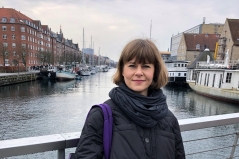
Malin Ekelund
Malin works at the University of Gothenburg, currently in a project within environmental psychology utilizing different kinds of social norms as intervention techniques to encourage pro-environmental behaviors. Her main research interests falls within social psychology, specifically stigmatization processes, stereotypes, and prejudices. Previously Malin worked in the communication and advertising industry, mainly as a content strategist.
Namkje Koudenburg
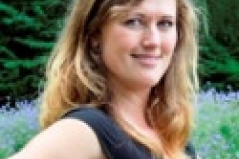
Namkje Koudenburg
Namkje Koudenburg received both her Bachelor and Master’s degree in Social Psychology at the University of Groningen. At the same university, she is currently working toward her Ph.D. together with Dr. Tom Postmes and Dr. Ernestine Gordijn. Her research mainly concerns group dynamics. Specifically, in her Ph.D. project she examines the effects of conversational flow and silences on social needs and perceptions of consensus. In a different line of research she investigates voters’ perceptions on non-voting.
Sandrine Isoard-Gautheur
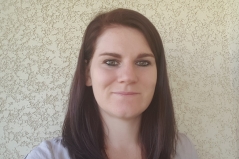
Sandrine Isoard-Gautheur
Sandrine Isoard-Gautheur is a Maîtresse de Conférences at the Université Grenoble Alpes, affiliated with the Sport and Social Environment Laboratory (EA3742). Her research in social psychology focuses on the phenomenon of athlete burnout in high-level athletes or those ascending to high levels, aiming to identify developmental, environmental, motivational, and emotional factors that influence the emergence of this syndrome. Twitter/X: @IsoardGS
Brad Bushman
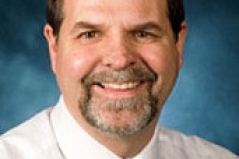
Brad Bushman
Brad Bushman is a professor at The Ohio State University and the Margaret Hall and Robert Randal Rinehart Chair of Mass Communication. He received his Ph. D. in social psychology from the University of Missouri. Dr. Bushman is widely known for his research on aggression and violent media.
Aïna Chalabaev
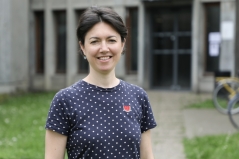
Aïna Chalabaev
Aïna Chalabaev is Full Professor at the Université Grenoble Alpes where she leads the Sport and Social Environment Laboratory. Her research focuses on the psychosocial determinants of participation in physical activity and sports, and notably on the motivation and threat-related processes resulting from stigmatisation. Twitter/X: @achalabae
Dan Batson
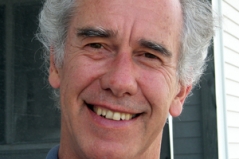
Dan Batson
Dan Batson received his Ph.D. in psychology from Princeton University in 1972 and is currently a Professor of Psychology at the University of Kansas. He has conducted a number of experiments on various forms of prosocial motivation, is the author of The Altruism Question: Toward a Social-Psychological Answer (Erlbaum Associates, 1991), and the chapter in The Handbook of Social Psychology (4th ed.) on “Altruism and Prosocial Behavior” (McGraw-Hill, 1998).
